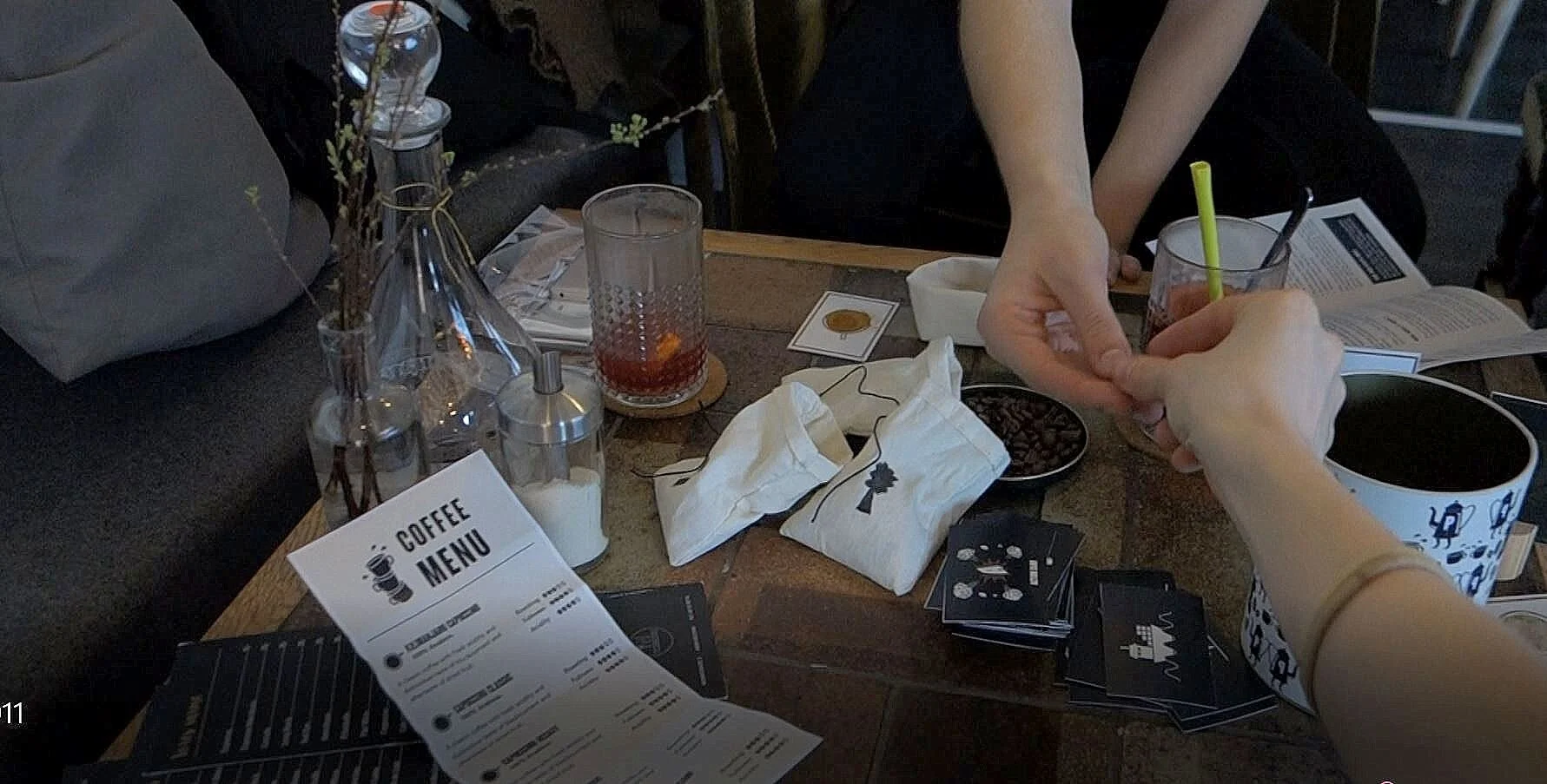tak for kaffe
A BOARD GAME ON PRODUCTION CONSCIOUSNESS
“HOW MIGHT WE CREATE A PLAYFUL COFFEE EXPERIENCE RELEVANT FOR TEENAGERS OF THE 21ST CENTURY?”
CASE
Denmark is one of the top 10 countries in coffee consumption per capita. Peter Larsen is the first coffee company in the country, striving sustainable and environmental-friendly solutions, developing and promoting Organic and Fairtrade certified coffee products for more than 100 years.
As their main consumers are adults (that are getting older), they looked for a playful solution to attract and find loyalty among young people. Teenagers prefer sugary iced coffee over strong coffee taste. However, cafés are their social meeting point; being the main touch points to coffee in their everyday life.
SOLUTION
Tak for Kaffe is a strategic board game about the coffee chain. It puts players in the shoes of a coffee entrepreneur so they experience the process and the results of the decisions that drive the coffee industry.
CONCEPT
The game combines educational value with the fun experience of playing the idealistic coffee enthusiast against the merciless businesspersons. Just as in real life, all actions have consequences, and they affect farmers, profit, social reputation and the environment. Tak for Kaffe raises awareness of our place in the world, and shows that everyone, at any time, can make a decision that will change the world.
Designed to be part of board games cafés collections, it is suitable for players 12+ years old, aiming groups of teenagers or families to play. It is in youth years when identity and values are built and established. Teenagers want to make an impact in the world, influence their environment and have a voice in their circles (including family). Furthermore, in a few years they will be coffee consumers and will already know about coffee chain consequences, about Peter Larsen Kaffe and about its company values.
How does it work?
Each player runs a coffee company. The cards will lead them through a journey into the coffee chain with different stages (farming, harvesting, transport, roasting and distribution) during which they will try to dominate the coffee market.
To start their company, each player gets some goods in the shape of tokens that correspond to their Profit (beans), Sustainability (trees) and Welfare (hearts) values and a Taste Card - that is the coffee they are producing! They will have to put it in their forehead while playing and guess what their competitors produce to demonstrate their master in the field.
There are two kind of cards to play:
The Action Cards introduce funny and unexpected elements that disrupt the game. For instance, with some of these cards players get values (tokens) from other companies.
The Decision Cards introduce different options to the players running their businesses. Each decision has direct consequences to their company values; they will win or lose tokens representing those values depending on their decisions.
The players need to balance the presence of those values in their companies to win the game. When a company reaches a set amount of tokens, they receive a totem (one for Sustainability, one for Profit, and one for Welfare). Once all the totems are assigned, the leader of the coffee market will be the one with the highest score, considering not only the tokens collected, but also the totems and their performance during the whole game.
PROCESS
Tak for Kaffe was the result of 2018 DSKD’s Design Camp. During two weeks, multidisciplinary teams developed an end-to-end project for a Danish company.
Initial conversations with the company members and other stakeholders provided a better understanding of the brief, together with valuable insights that lead us to a shift in the initial challenge. Combined with some desk research and using the company values as one of their main differentiators, the game mechanics were ideated, prototyped and tested. The last sprint was meant for a refined physical version of the game and the presentation preparation.
OUTCOME
The idea was well embraced by Peter Larsen team, leading to several meetings with the company to discuss the further development of the game.












